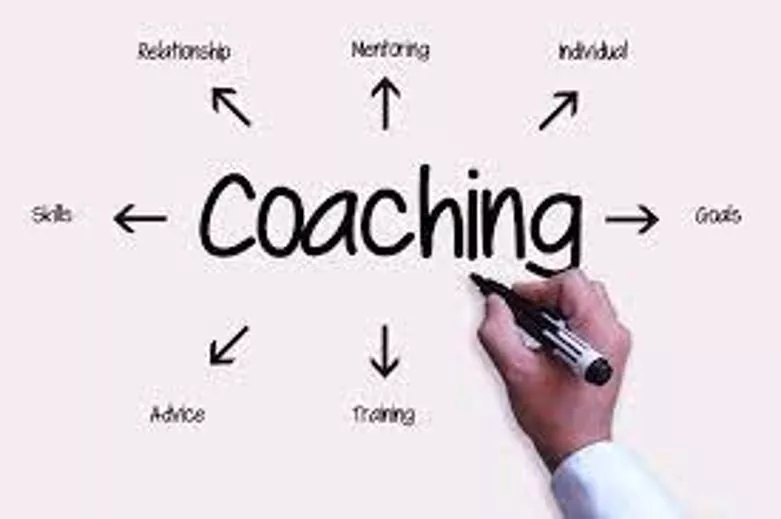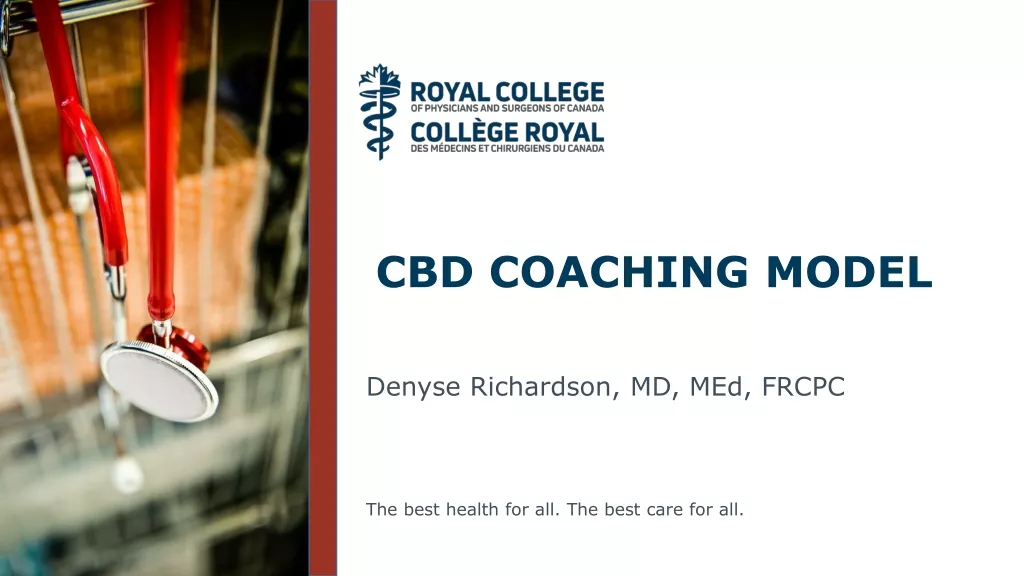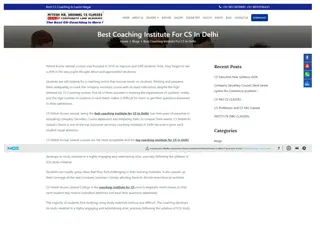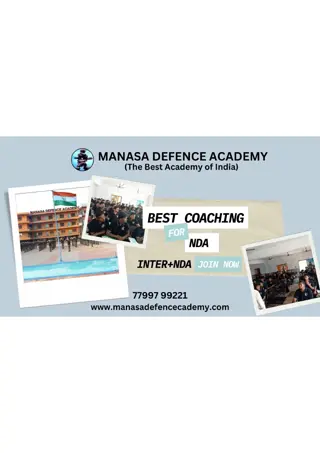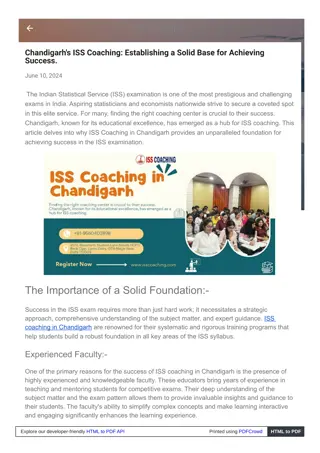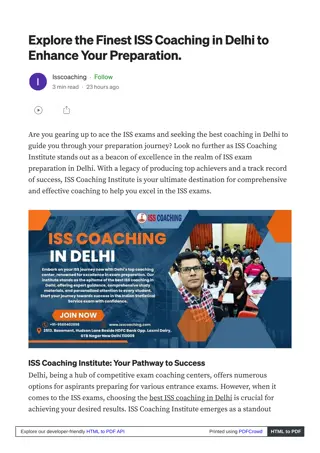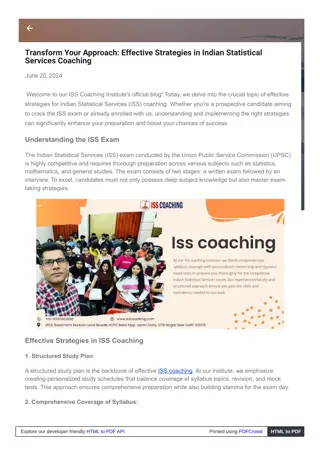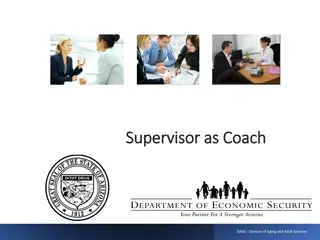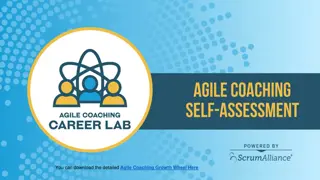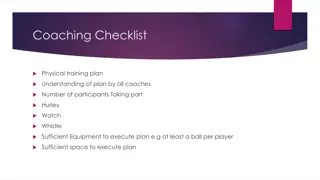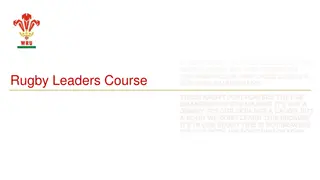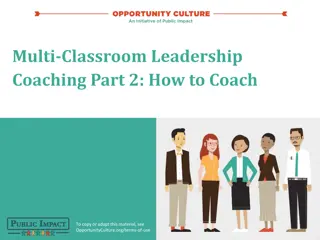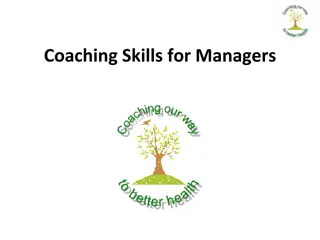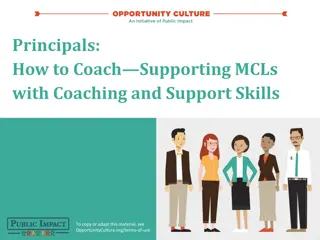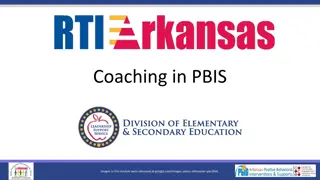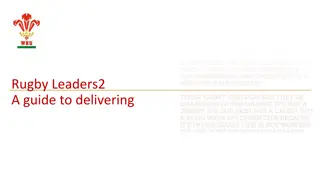Coaching
Coaching involves supporting individuals in making changes and achieving goals. Motivation initiates and maintains goal-oriented behaviors, with intrinsic and extrinsic motivations playing key roles. Assessment is a systematic process of gathering data to understand what learners know. Various approaches are used to motivate trainees, while different types of assessments help in measuring learning outcomes effectively.
Download Presentation

Please find below an Image/Link to download the presentation.
The content on the website is provided AS IS for your information and personal use only. It may not be sold, licensed, or shared on other websites without obtaining consent from the author.If you encounter any issues during the download, it is possible that the publisher has removed the file from their server.
You are allowed to download the files provided on this website for personal or commercial use, subject to the condition that they are used lawfully. All files are the property of their respective owners.
The content on the website is provided AS IS for your information and personal use only. It may not be sold, licensed, or shared on other websites without obtaining consent from the author.
E N D
Presentation Transcript
Coaching Coaching is a process where a coach supports a coachee to make a change, learn something new or achieve goals.
How does Coaching work? Committed listening Paraphrasing Presuming Asking Powerful Questions Feeding back:
Motivation of Learners Motivation is the process that initiates, guides, and maintains goal- oriented behaviors.
Types of Motivation Extrinsic motivations Intrinsic motivations
Uses of Motivation Uses of motivation include: Help improve the efficiency of people as they work toward goals Help people take action Encourage people to engage in health-oriented behaviors Help people avoid unhealthy behaviors such as risk-taking and addiction Help people feel more in control of their lives Improve overall well-being and happiness
Approaches to Motivate Trainees: Sharing successful story Encouraging Get involve Get Creative Offer incentives Use quotation A journey of thousands miles start with one step
Learning Assessment Assessment is a systematic process of gathering, interpreting and acting upon data related to students learning and experience for developing a deep understanding of what trainees know, understand and can do with their knowledge because of their education experience.
Types of Assessment Diagnostic Formative Summative
Classroom Assessment Techniques Question and Answer: Think-Pair-Share Mind Mapping: KWL-Chart Others






